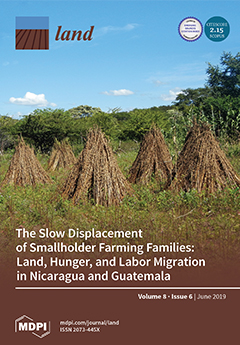Resource information
The Moroccan Agency for Sustainable Energy (MASEN) established one of the largest solar energy projects in the world through a public–private partnership. It is on communal land previously owned by a Moroccan Amazigh (Berber) clan in the Ghessate rural council area, 10 km away from Ouarzazate. The land for the energy project comprises a surface area of more than 3000 hectares. This large-scale land acquisition has led to the loss of access to common-pool resources (land, water, and plants), which were formerly managed by local common property institutions, due to its enclosure, and the areas themselves. This paper outlines how the framing of the low value of land by national elites, the state administration, MASEN, and the subsequent discourses of development, act as an anti-politics machine to hide the loss of land and land-related common-pool resources, and thus an attack on resilience—we call it in our scientific discipline a process of ‘resilience grabbing’ (Resilience is the ability of a person and/or a household to restore basic livelihood capacities after shocks and hazards. Such capacities need to be available over time and remain high for the unit (household, community) to be resilient), especially for women. As a form of compensation for the land losses, economic livelihood initiatives have been introduced for local people based on the funds from the sale of the land and revenue from the solar energy project Noor Ouarzazate. The loss of land representing the ‘old’ commons is—in the official discourse—legitimated by what the government and the parastatal company call the development-related ‘fruits of growth’, and should serve as ‘new forms of commons’ to the local communities. The investment therefore acts as a catalyst through which natural resources (land, water, and plants) are institutionally transformed into new monetary resources that local actors are said to be able to access, under specific conditions, to sustain their livelihood. There are, however, pertinent questions of access (i.e., inclusion and exclusion), regulation, and equality of opportunities for meeting the different livelihood conditions previously supported by the ‘old’ commons.


